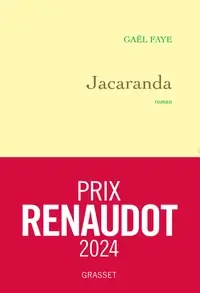En cours de chargement...
Goethe's 'Faust' is considered to be his Magnum Opus and one of the best works of German literature ever completed. It is a universal tale of belonging, love, despair and finding ones purpose.
Faust is a man in anguish; having dedicated his life to the sciences, to understanding the world around him he now sees that he has learnt all that he can. He is distraught by the notion that he cannot be at one with the cosmic universe and attain the highest form of knowledge.
Seeing this, The Devil wagers with God that he can turn his most favourite and loyal follower to sin. What follows is a wondrous, vivid, violent, romantic and supernatural thrill.
Goethe's incredible ability to build emotion, characters and the world is in full effect here, creating a heart wrenching tale that will fully absorb you. With a strong underlying moral theme, this tale is not one you'll soon forget.
This blend of the alluring supernatural, the desperate humanity and the hopelessly intriguing is perfect for any readers who loved Dan Browns 'Angels and Demons', just with less Tom hanks, unfortunately.
Johann Wolfgang Von Goethe (1749-1832) was a German, poet, playwright novelist and scientist, he is to this day considered the greatest German literary figure of the modern age. He was an early leader in the 'Sturm and Drang' literary movement, which emphasised individual subjectivity and the freedom to express extremes of emotion, seemingly repressed by the Enlightenment.
He is a figure held by philosophers and essayists as being in league with Plato, Napoleon and Shakespeare. His most notable works such as 'The Sorrows of Young Werther' , 'Wilhelm Meister's Apprenticeship' and 'Faust' are to this day referred to as some of the best literary work, ever completed.








Pas facile et enigmatique
Métathéâtre, poésie, réflexion sur le savoir, la connaissance, l'Homme. Beaucoup de questionnements sont abordés dans cette pièce. L'amour, la vengeance, le pouvoir du bien et du mal, mais surtout la vie. Le langage ainsi que les personnages sont très énigmatiques, si bien qu'on a du mal à rentrer dans cette pièce, mais il faut s'accrocher. L'absence quasi systématique de didascalie en fait une pièce presque romanisée, l'imaginaire de la scène n'est pas évident, mais présent tout de même (surtout par les costumes et les lumières). La fin me laisse perplexe, mais les différentes thématiques abordées m'ont séduites.